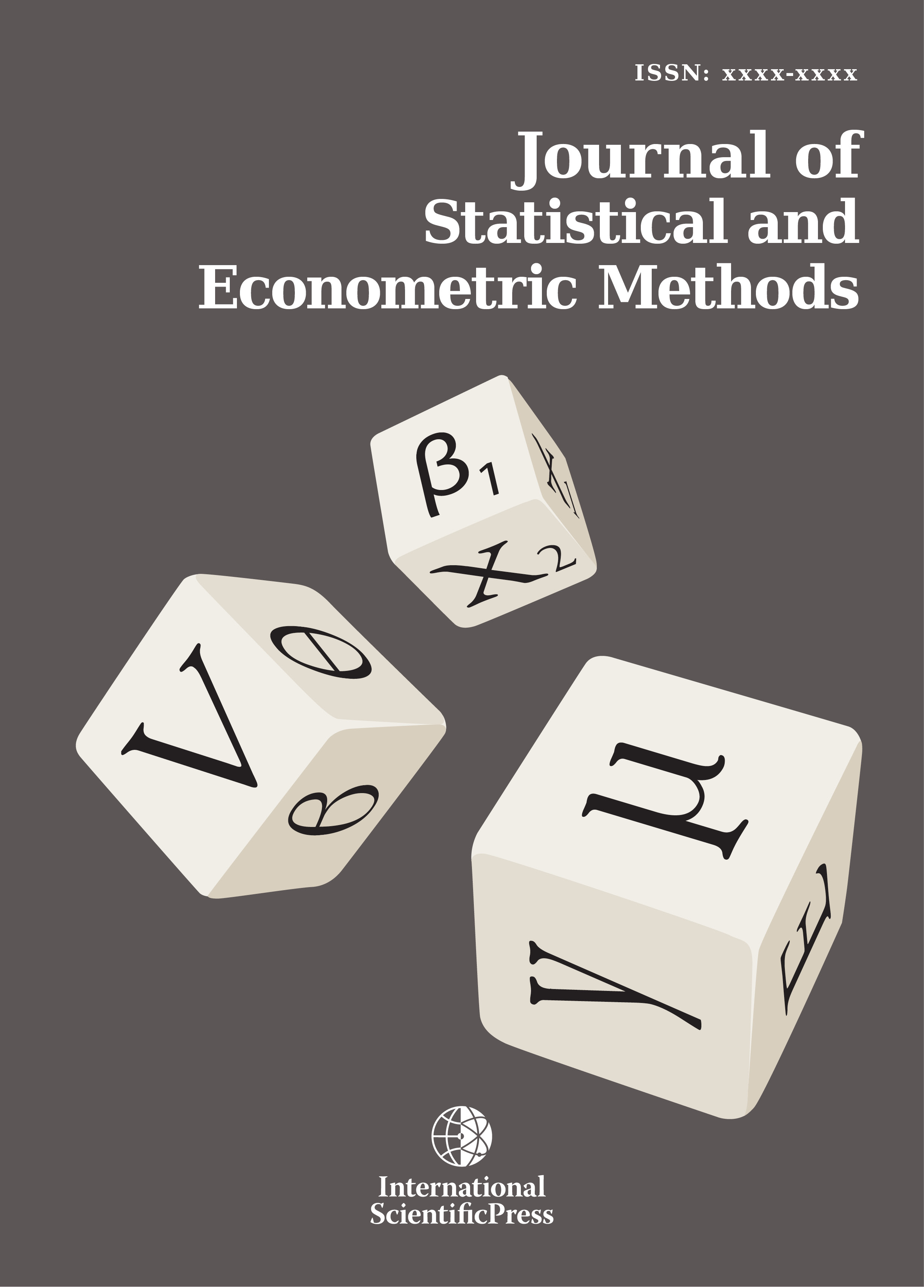Journal of Statistical and Econometric Methods
The Bayesian Approach to Multi-equation Econometric Model Estimation
-
 [ Download ]
[ Download ]
- Times downloaded: 10425
Abstract
The Bayesian approach to Statistical inference enables making probability statements about parameter (s) of interest in any research work. This paper presents a study of multi-equation Econometric model estimation from the flat or locally uniform prior Bayesian approach. Using a two-equation model containing one just-identified and one over-identified equation, we present a Bayesian analysis of multi-equation econometric model as well as a Monte Carlo study on it, using WinBUGS (windows version of the software: Bayesian analysis Using Gibbs Sampling). In studies involving the use of flat or locally uniform prior, it is the usual practice to specify the prior distribution in such a way that the variance is large. However, the definition of this “large” variance could vary among researchers. This research work considered three different variances (10, 100 and 1000) with particular focus on the Mean squared error of posterior estimates, looking for possible sensitivity to the prior variance specification. The result of the Monte Carlo study showed that a prior variance 10 gave the smallest Mean squared error out of the three stated prior variances. As reflected in the kernel density plots, the distribution of the Posterior estimates from the prior variance 10 was the closest to the t distribution obtained theoretically.
